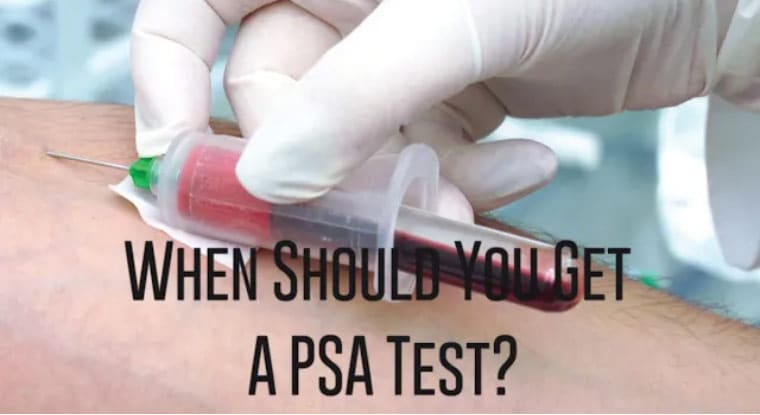Wondering when to consider a PSA test? Drs. Yaser Bassel and Howard Epstein recommends early screening for certain at-risk groups.
Continue readingThe Importance of the PSA Test: A Key to Prostate Health
Understand the importance of the PSA test. It is recommended for men between the ages of 55-70 who expects to live at least another 10 years.
Continue readingWhen do you need a PSA test?
What can cause an elevated PSA?
When Is the Right Time for a PSA Test, According to Dr. Yaser Bassel?
When Should You Get A PSA Test?
- Bacterial infection
- Dribbling after urination
- Increased need to pass urine (especially at night)
- Enlarged prostate, called benign prostatic hyperplasia (BPH)
- Prostate cancer
One of the most common cancers
The second most frequent cancer in American men, after skin cancer, prostate cancer typically grows slowly and shows very few early symptoms. So doctors usually recommend that men go for screening to ensure the cancer is spotted early even before symptoms arise and prior to the cancer getting more advanced. During screening tests, doctors perform prostate exams to detect any abnormalities that may indicate an issue, such as cancer. But the exams are not recommended for everyone and are often only necessary when the benefits outweigh the risks.
The PSA (Prostate-Specific Antigen) Test
The prostate-specific antigen test, simply called PSA, is a blood test for detecting prostate cancer and one of the most frequently used screening tests for the cancer. When there is an elevated level of the PSA in the blood, it might indicate that you have cancer. However, it’s not always that straightforward. In fact, there is a raging controversy about the PSA test, with many people questioning whether or not it’s necessary for younger men who are otherwise healthy. For instance, there is the argument that if there is a false positive PSA result, it may cause a lot of unnecessary anxiety and could even cloud a person’s decision regarding future treatment. False positive results are relatively low with the PSA test, but they may still occur.
The biggest argument against the PSA test is that treatment isn’t necessary for many prostate cancers. The cancer tends to grow and spread slowly and rarely causes serious effects during a man’s lifetime. While, in some cases, the cancer can be really aggressive and the PSA test may detect it when it’s still small and easier to treat, the side effects of cancer treatment are monetarily and physically too costly. So a lot of precaution is necessary when deciding who should or should not get treatment — there is no reason for treating a cancer that has little or no chance at all of progressing.
So when should you get your first PSA?
It is important to discuss the benefits, risks and uncertainties of the PSA (prostate-specific antigen) test with your doctor before getting it. If you are a man of average risk, you should get your first PSA at the age of 50. But for men at high-risk of developing prostate cancer, such as African-American men, men of Caribbean descent and men with a first-degree relative (brother, father or son)
who had the cancer before age 60, then the first PSA should be at 45. And for men who are at higher risk, such as those who have more than one first-degree relative who had the cancer at an earlier age (younger than 50), the first PSA test should be at the age of 40.
Establishing the baseline with first PSA
At Advanced Urology Institute, we recommend that men get their first PSA test before the age of 50 so that a baseline can be established and used to make the decision as to whether or not they’ll need further tests. If it’s very low, then your regular PSA tests can be put off. But in cases where the PSA is elevated, we conduct other tests to ensure that it is prostate cancer we’re dealing with and not a prostate infection or an enlarged prostate. Depending on the PSA test result, we may repeat your PSA every 6 months to assess whether the first was a false positive or there is an upward trend.
The main thing with the PSA test is the changes in the level of PSA. Some men can have normal PSA but still have prostate cancer. So monitoring the changes and trends in your PSA is critical for cancer diagnosis. That’s why we encourage people to get their first PSA test early to establish a baseline for monitoring their PSA level. You don’t have to undergo a prostate biopsy just because you have done a PSA. If it’s found that your PSA is where it should be, you’ll not need a biopsy. That’s why we always want to be sure of the trends in your PSA.
Are you at high-risk of prostate cancer? Or are you experiencing symptoms of what could be a prostate problem, such as painful or frequent urination or blood in urine? At Advanced Urology Institute, we exhaustively discuss the pros and cons of the PSA test with our patients before making any decisions. We understand that PSA screening has both benefits and risks and we try to make the best possible decisions for our patients. For more information on the PSA test, prostate exams, diagnosis and treatment of prostate cancer, visit the “Advanced Urology Institute” site.
Screening for Prostate Cancer: The PSA Test
Video: Providing Effective Patient Education
Urologists and other physicians diagnose the cancer by conducting physical examination, studying symptoms, biopsy, and prostrate-specific antigen (PSA) tests. [Read Full Article…]
The PSA Test, The Best Tool for Prostate Cancer Screening – Dr Matthew Merrell
Video: The PSA Test, The Best Tool for Prostate Cancer Screening – Dr Matthew Merrell
PSA exam is a blood test to determine the levels of prostate specific antigens. The tests measure the level of PSA in your body, which is then compared to the expected amount for your age. Contact a urologist now to know more about this procedure. [Read Full Article…]
The PSA Test, Is it Still Recommended? – Dr. Stephen Weiss
Video: The PSA Test, Is it Still Recommended? – Dr. Stephen Weiss
Symptoms of Prostatitis are similar to those of benign prostatic hyperplasia so a PSA Test is still recommended by Urology Specialist to thoroughly detect this type of condition. Contact a urologist now and get treatment for this condition as soon as possible. [Read Full Article…]











